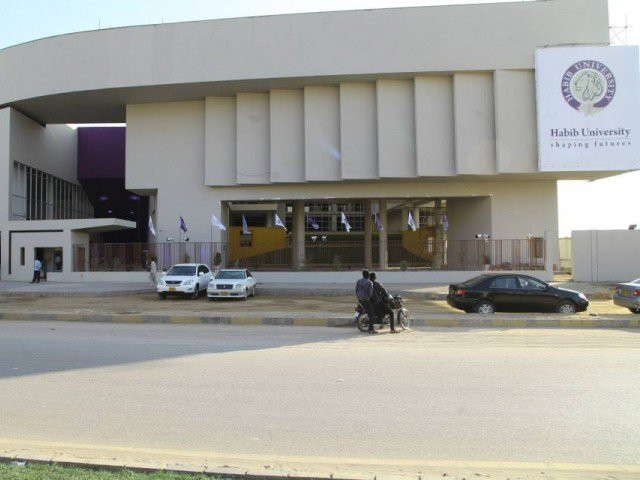Bosnian scholar discusses femininity in religion
Dr Jasarevic attempts to bridge critical (eco) thinking with insights from Islamic metaphysics

In a country like Pakistan where a systemic erasure of women is perpetuated in every sphere, there is a global need to raise awareness of women's roles in society. This was the crux of a lecture of the role of women and femininity in religion organised by Habib University on Thursday.
The inaugural lecture for the Lady Fatima Endowed Faculty Chair Lecture Series featured Dr Larisa Jasarevic, an independent scholar from Bosnia-Herzegovina. It was titled, 'Thinking on the Tattered Planet: Ecostress, Religion, and the Gender Quarrel.'
Dr Jasarevic brought an intricate, experiential and scientific perspective to climate ecology, with an attempt to bridge critical (eco) thinking with insights from Islamic metaphysics.
The talk sought to anticipate themes in the Lady Fatima Endowed Faculty Chair in Women and Divinity Lecture series by generally asking, what thinking can we aspire to cultivate on our tattered planet? The discussion was informed by her observations on climate change, Prophetic lessons on sustainable living, and memories of Hazrat Bibi Fatima (SA).
Founding President, Wasif Rizvi remarked, "An endowed faculty chair with such a unique perspective shows strong resonance with the university's distinct mission of crafting a thoughtful education experience for our students from all backgrounds."
Dr Larisa Jasarevic said, "With the Lady Fatima Chair in place, how do we respond? What can religion, specifically Islam, offer at a time when the planet is rapidly being undone? Islam, with its rich teachings, has the capacity to redefine living, a religion with "constant renewal" as its baseline. Islam ought to help us critically reinterpret sustainable living inspirations."
Dr Jasarevic highlighted the disparity in climate research funding, with hard sciences receiving significantly more than the humanities, despite the need for social sciences to address how to act on climate knowledge. She linked this to sustainable living, drawing lessons from the poverty of Ahl al-Bayt as taught in Islamic tradition.



















COMMENTS
Comments are moderated and generally will be posted if they are on-topic and not abusive.
For more information, please see our Comments FAQ